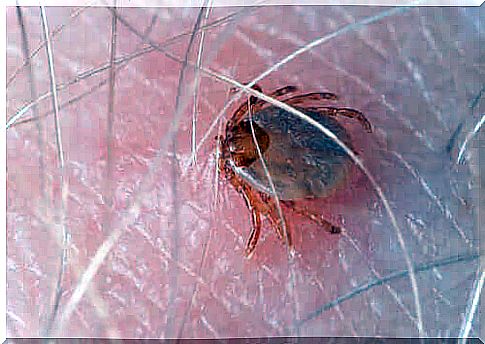What Is The Best External Antiparasitic?

By adopting a pet, we take responsibility for its health and care. In addition to providing adequate food and all our love and attention, it is also important to consider some preventive health care. So today we are going to talk about which is the best external antiparasitic.
Among these necessary attentions are, obviously, vaccines, but also periodic deworming, internal and external, which are really indispensable.
The deworming must be able to effectively prevent and fight the parasites that can affect our pet. That’s why you should always choose the best products, of proven quality and efficiency.
External parasites of pets
External parasites on pets are those that live on the pet’s fur or fur. The most common are fleas, lice, ticks and flying insects. Most are harmless and cause only minor itching and discomfort. However, some can cause more serious problems.
Just because a pet’s parasites aren’t seen doesn’t mean they don’t exist. When there are a few, they are often difficult to detect with the naked eye. However, if the parasites are easily visible, it is possible that the infestation is already very advanced and is more difficult to cure.
Danger from external parasites
Parasites can cause a lot of discomfort to pets. Furthermore, the situation can be more or less serious depending on the type of parasite and the magnitude of the infestation. Their bites usually cause itchy and irritated skin, but they can also cause skin conditions that can lead to significant risks.

The most serious problems are caused by the dangerous diseases that these parasites can transmit, and some of them can even be fatal.
External parasites can be intermediaries for diseases such as ehrlichiosis, leishmaniasis, filariasis, feline infectious anemia, among others. These diseases are transmitted through the bite to the final host, which is either pets or humans.
One of the most common conditions in pets, caused by external parasites, is allergic dermatitis. This problem is caused by an animal’s allergic reaction to the bite of a parasite, usually fleas.
In the animal’s skin, this condition causes great irritation, which, in turn, causes it to scratch constantly, and may even cause deep wounds.
Types of external antiparasitic
Regarding the problem of external parasites, the best attitude is always to prevent it, as once the infestation occurs, it will be much more difficult to stop it. This is why it is vitally important to periodically use an external antiparasitic to prevent parasites in dogs and cats.
Before choosing a product, it is necessary to check very carefully against the type of parasite it protects and for how long. It is also important to check that the product contains insecticide and not just repellent. That way, you’ll be able to eliminate the parasites instead of just driving them away.

In the case of external antiparasitics, there is a wide variety of products. The main and most effective are collars, pipettes and sprays.
The flea and antiparasitic collars are very comfortable and last between three and eight months. Pipettes for external parasites are relatively new and generally require monthly application. Its application is quick and easy.
Finally, the sprays external antiparasitic has immediate action. They are more recommended for pets that are already infested with fleas, lice or ticks than to avoid possible infestations. Their application requires some skill and patience, but they are usually very effective.
How to choose the best external antiparasitic?
On the market, there is a wide variety of external antiparasitic, with different prices. However, choosing the cheapest is not always a good idea. Products of questionable efficacy and origin can be harmful to our pet.
It is necessary to remember that these products are manufactured with powerful chemicals, so it is always advisable to consult your veterinarian.
The best external antiparasitic will depend on each specific case. You will have to consider whether it is a dog or a cat, the animal’s age, the place where you live (an urban or rural area), the time of year, etc… And, of course, you need to experiment with which product is best tolerated for your pet.








